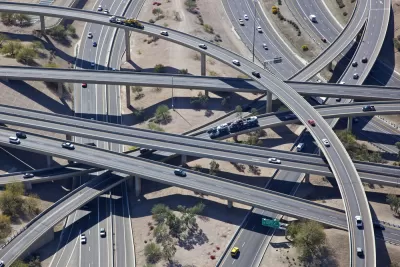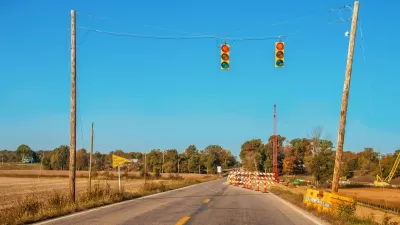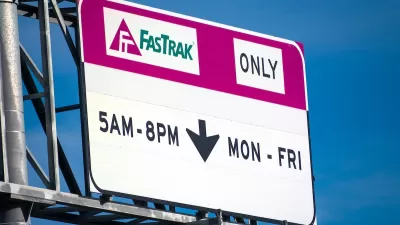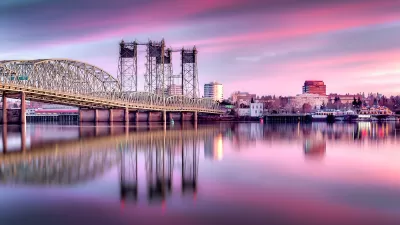It all depends on one thing: How much are travelers willing to pay for a shorter trip?

In deciding whether to undertake highway expansion projects—which can cost billions of dollars—projected time savings for travelers are often a major consideration. So if travelers aren't willing to pay as much as current wisdom suggests for shorter trips, that would "call into question the rationale for investing public funds in highway projects."
And indeed, after some slightly wonky deliberations, City Observatory's Joe Cortright concludes that "many investments of scarce public resources in additional unpriced road capacity isn’t economically worthwhile for the travelers who use it."
There's a "rule of thumb," Cortright says, that "travelers value their time at something close to half their wage rate." But according to a recent paper that looked at use of high-occupancy toll (HOT) lanes, the certainty of arriving at a particular time is actually far more important to most travelers.
A more accurate rule of thumb might be that "the typical user values travel time savings at about $3 per hour, and reliability improvements at about $23 per hour."
FULL STORY: What HOT lanes reveal about the value of travel time

Planetizen Federal Action Tracker
A weekly monitor of how Trump’s orders and actions are impacting planners and planning in America.

Maui's Vacation Rental Debate Turns Ugly
Verbal attacks, misinformation campaigns and fistfights plague a high-stakes debate to convert thousands of vacation rentals into long-term housing.

San Francisco Suspends Traffic Calming Amidst Record Deaths
Citing “a challenging fiscal landscape,” the city will cease the program on the heels of 42 traffic deaths, including 24 pedestrians.

Amtrak Rolls Out New Orleans to Alabama “Mardi Gras” Train
The new service will operate morning and evening departures between Mobile and New Orleans.

The Subversive Car-Free Guide to Trump's Great American Road Trip
Car-free ways to access Chicagoland’s best tourist attractions.

San Antonio and Austin are Fusing Into one Massive Megaregion
The region spanning the two central Texas cities is growing fast, posing challenges for local infrastructure and water supplies.
Urban Design for Planners 1: Software Tools
This six-course series explores essential urban design concepts using open source software and equips planners with the tools they need to participate fully in the urban design process.
Planning for Universal Design
Learn the tools for implementing Universal Design in planning regulations.
Heyer Gruel & Associates PA
JM Goldson LLC
Custer County Colorado
City of Camden Redevelopment Agency
City of Astoria
Transportation Research & Education Center (TREC) at Portland State University
Jefferson Parish Government
Camden Redevelopment Agency
City of Claremont





























